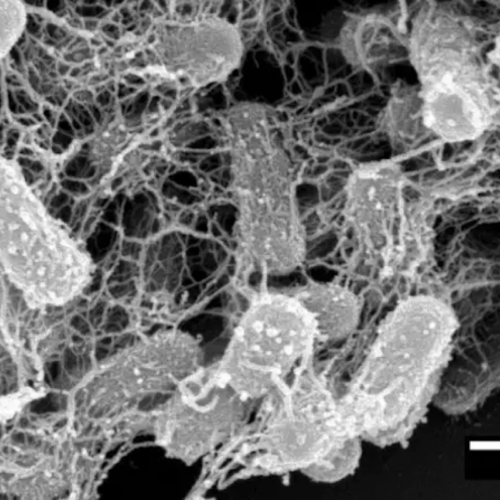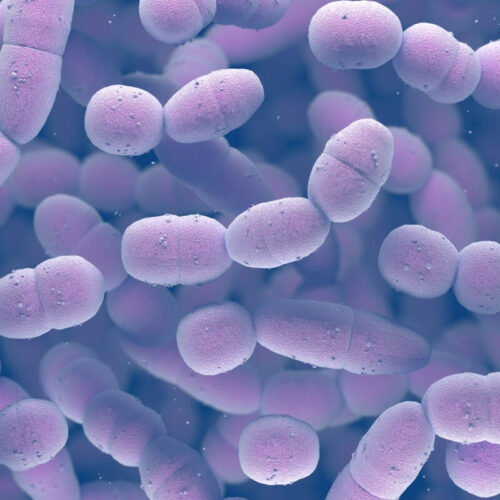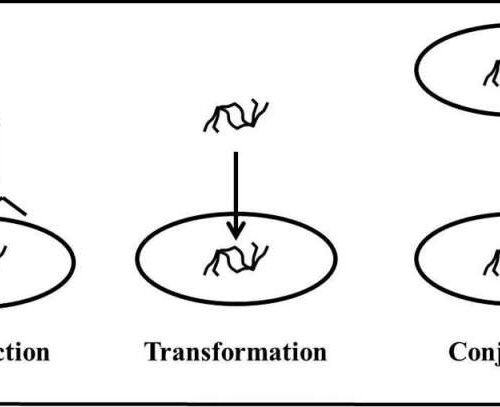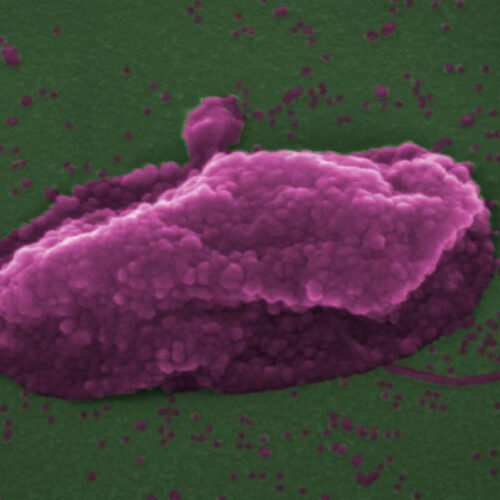August 7, 2024 by Society for Healthcare Epidemiology of America Credit: CC0 Public DomainFamily members of patients recently discharged from the hospital may have a higher risk of getting an antibiotic-resistant infection, often called a superbug, even if the patient was not diagnosed with the same infection, suggesting hospitals play a role in the community...
Tag: <span>superbugs</span>
Could new antibiotic clovibactin beat superbugs? Or will it join the long list of failed drugs?
by Sacha Pidot, The Conversation Credit: Unsplash/CC0 Public Domain Imagine a world where simple infections could become life-threatening, where a small cut could spell disaster, and where doctors couldn’t treat diseases effectively anymore. This isn’t the plot of a science fiction movie—it’s a real concern. For decades, antibiotics have been used successfully to fight a wide...
Novel ‘fast, tenacious’ molecule can KO drug-resistant superbugs
By Bronwyn Thompson August 09, 2023 Too much of a good thing: Current antibiotics have lost their power to fight constantly evolving microorganisms Depositphotos Decades of work has seemingly paid off with scientists developing a potent new synthetic molecule that swiftly knocked out 285 strains of bacteria it was tested on, setting it up as...
New target for antibiotics promises treatment for multi-drug resistant superbugs
UNIVERSITY OF GRONINGEN IMAGE: THIS IS DR. ADÉLA MELCROVÁ, BIOPHYSICIST AT THE UNIVERSITY OF GRONINGEN (THE NETHERLANDS) AND FIRST AUTHOR OF THE PAPER IN NATURE COMMUNICATIONS WHICH SHOWS THAT THE ANTIBIOTIC AMC-109 AFFECTS THE CELL MEMBRANE OF BACTERIA BY DISORDERING ITS ORGANIZATION. THIS IS A NEW WORKING MECHANISM. CREDIT: JOSEF MELCR, UNIVERSITY OF GRONINGEN The...
Bacteria-activated, self-assembling “nanonets” trap and kill superbugs
By Michael Irving March 07, 2023 A scanning electron microscope image of E. coli ensnared in a nanonetNational University of Singapore Bacteria are fast developing resistance to our best antibiotics, potentially ushering in a new “dark age of medicine” where currently treatable infections become lethal once again. Now, scientists at the National University of Singapore...
Stalled Alzheimer’s drug may find new purpose against superbugs
By Michael Irving January 12, 2022 Researchers have repurposed an experimental Alzheimer’s drug to fight antibiotic-resistant bacteria credit: ktsdesign/Depositphotos Our antibiotics are failing in large numbers, threatening a future “dark age of medicine” where once-simple infections become lethal again. A team of scientists has now found a way to restore common antibiotics to their former...
Government support for academia and Big Pharma to find new antibiotics could help defeat superbugs
by Andre Hudson, The Conversation Bacteria can gain resistance via infection from a virus (transduction), picking it up from the environment (transformation) or direct transfer from other bacteria (conjugation). Credit: 2013MMG320B/Wikimedia Commons Antibiotic resistance poses one of the most important health challenges of the 21st century. And time has already run out to stop its dire consequences....
New defence against superbugs
FLINDERS UNIVERSITY For the first time, Australian scientists have confirmed a link between the role of regular fish oil to break down the ability of ‘superbugs’ to become resistant to antibiotics. The discovery, led by Flinders University and just published in the international journal mBio, found that the antimicrobial powers of fish oil fatty acids...
Last-resort antibiotic found to pop superbugs like balloons
By Nick Lavars May 04, 2021 The superbug Pseudomonas aeruginosa, after being “popped like a balloon”Imperial College London. By turning modern scientific tools on an antibiotic discovered 70 years ago, researchers have unearthed a previously unknown mechanism it uses to pierce and pop superbugs like balloons. Promisingly, the scientists have also demonstrated how this approach to taking...
Weak electric currents could help combat superbugs
Scientists have shown that currents measured in millionths of an amp kill bacteria by disrupting their outer membranes. The finding may inspire new antimicrobial technologies that use electricity to slow the spread of antibiotic resistant infections. New research suggesting that electricity can kill bacteria may have long-term implications for combating ‘superbugs.’ Scientists have known since...
- 1
- 2









